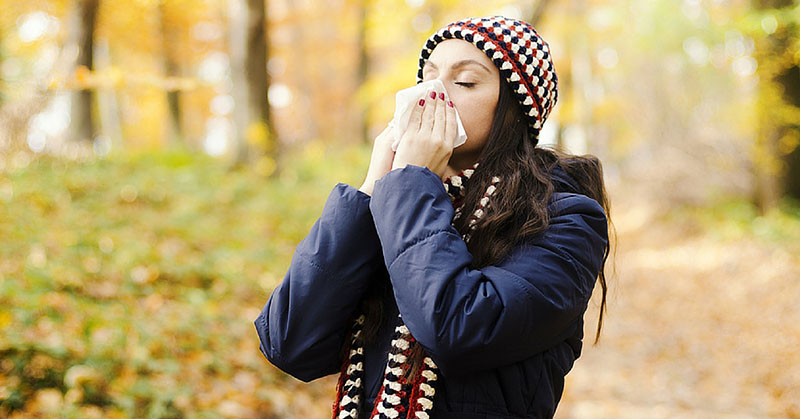
When the fall season arrives, many of the most frustrating allergies manifest, causing a wide variety of effects and symptoms. The Houston area is situated in a basin-like formation, which causes pollen, pollution, and other allergens to hover like a cloud over the city, exacerbating symptoms. The following are some of the best methods of combating allergies this fall.
The Rise of Ragweed
Beginning in mid-August, ragweed is one of the most pervasive allergens that affects people who suffer from fall allergies. Due to the prolific nature of the weed, and the fact that a single plant can release up to a billion pollen particles, ragweed is nearly impossible to avoid completely.
As a result, it’s vital to take your allergy medication before the negative effects become unmanageable. Antihistamines help suppress the symptoms while an allergy shot before the fall season begins helps to build resistance against ragweed.
Removing as much pollen as possible from your body is another great way to reduce the effects. Wash hands frequently to avoid passing pollen from your fingers to your orifices and take a shower before going to bed to reduce the amount of pollen getting into your bedroom. If possible, close your windows to prevent some of the particles from entering the house.
A neti pot can be used to flush the sinuses of pollen gathered within while helping to sooth the worst of the symptoms. A salt water nose spray or other nasal sinus rinsing fluids may be effective in reducing the problem.
Oral ragweed medications are a new way to fight against the effects of this fall allergen. However, they’ve only been recently approved by the FDA, so you may wish to hold off until further data is available.
Keep Your Environment Clean of Allergens
In addition to ragweed, fall allergies can be triggered by floating mold spores and dust mites. While dust mites frequently peak in August, mold spores float around hot weather climates like Houston throughout the year.
Due to the persistence of these environmental allergens, installing HEPA or MERV filters in your HVAC system and vacuum helps filter fine particulate matter, including pollen, spores, and mites. Pillow covers that resist allergen infiltration can reduce the amount of allergens in your bed.
Battling Fall Allergies?
There’s no need to suffer through fall allergies without help from an experienced doctor, like the physicians at Houston Allergy & Sinus. Contact us to take action before the fall allergy season roars into full effect, and prevent the worst of the symptoms from taking over your day-to-day routine.

